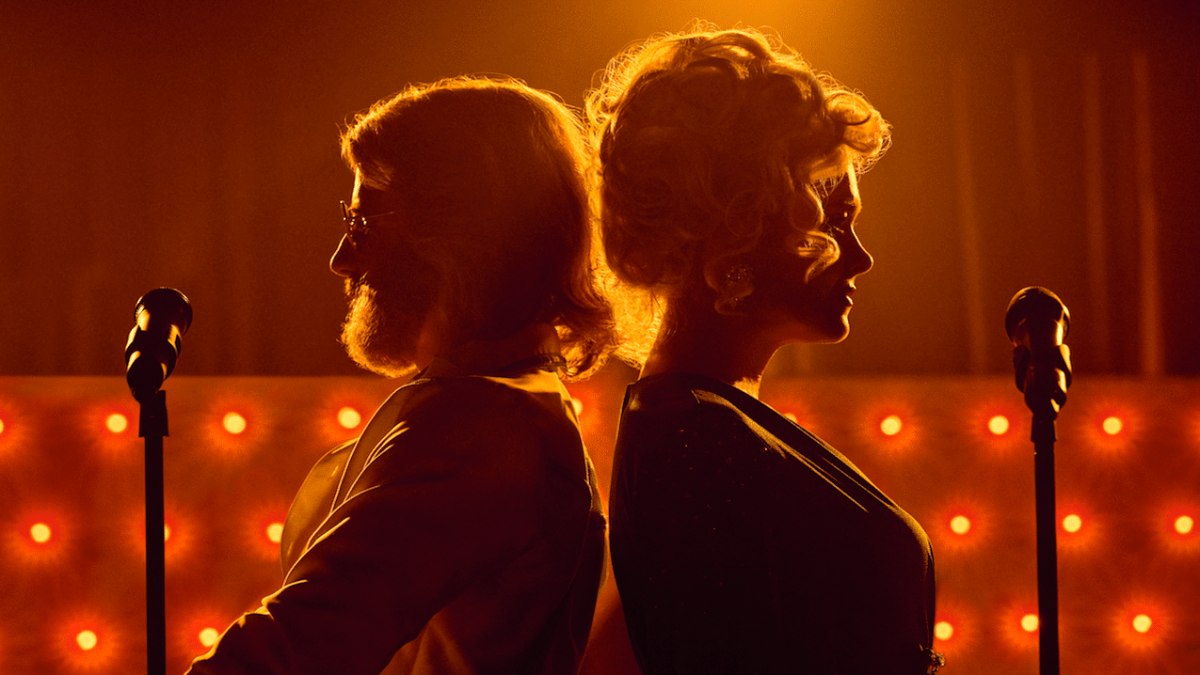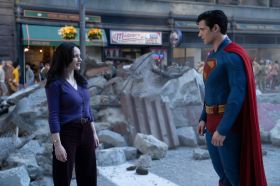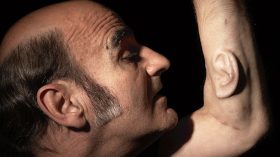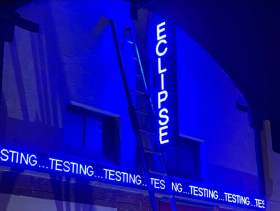Right now, a new release from our domestic sector is a rare event, so Seriously Red could be a breath of fresh air. Roadshow found 268 screens, which is a broad but not overwhelming release. The story, a rom-com about a Dolly Parton impersonator, was loved into life by the five industry women who set up Dollhouse Pictures, and actively kissed on the head by none other than Dolly herself.
Read: Wakanda sparkles as Dollhouse launches
The Sydney Morning Herald called it a ‘joyful, candy-coloured confection with a touch of lemon about the joys and sorrows of show business’.
Deadline covered the production when it was launched at South by South West in Austin this year, and said it is ‘raucous but hugely enjoyable’. The Guardian reported the production story positively but never quite praised the show itself.
Pramit Chatterjee, on Indian site Digital Mafia Talkies, caught the Austin wave and takes the picture seriously as a study of fandom and personal identity. ‘One of the biggest merits of Otto’s direction and Boylan’s writing in Seriously Red is how it focuses on the reasoning behind obsessively following a star, but in a non-condescending way.’
Over on Rotten Tomatoes, the reviews are much less kind. Flicks, for instance, leads in with: ‘An Aussie dramedy stumbles out of SFF and fumbles into cinemas, with subplots that go nowhere and an unconvincing Dolly imitation.’
With that division and language, the pictures needs punters looking for fun and enchanted with the silliness of life. Did they arrive? The picture made a grand total of $266,000 in its first week. Dollhouse Pictures will not be happy, though the competition before Christmas does not extend far beyond Avatar: The Way of Water.
The other new films
Still at number one, Black Panther: Wakenda Forever still copped a belting last weekend from the exhibitors. In week three, it lost a third of its screens and half of its take, now down to 491 screens and $2.92m in box office, to create a total of $22.3m from the Australian box office.
Every other distributor would relish those figures off a single title in the sleepy time before Xmas.
The Menu, Disney’s black comedy horror, opened at number two on 336 screens to take $1.22m. It has a lot going for it. Ralph Fiennes and rising star Anya-Taylor Joy provide the acting chops; director Mark Myeloid has no recognition value but has done a lot of excellent television like Entourage, Shameless and The Affair, before taking on many later episodes of Game of Thrones. Writers Seth Reiss and Will Tracy are deep in comedy and comic variety shows, while the production companies are dominated by comedians.
Disney also struck modest gold with the number three slot, as Strange World arrived with a slightly wider release though only $601,000 in sales. So The Menu did twice as well as Strange World – an issue we will come back to in the US figures.
First week – the rest of the crop
Bones and All, the cannibal romcom, which has Timothée Chalamet, Mark Rylance, Jessica Harper and Chloë Sevigny to draw audiences, came out on a modest 178 screens and made $195,000 – not an encouraging restart but typical of confronting content. It has made $9m around the world, off a $25m+ budget, with $5.5m from the US. Distributor Warner Bros will not be planning any big parties.
Margrete: Queen of the North crept quietly in after audiences at the Scandinavian Film Festival were positive. It is a medieval Danish film about Queen Margaret, who unified Denmark, Sweden and Norway to resist the Teutonic Knights, before confronting an appalling personal dilemma. With the cream of Danish actors, lovely visuals and a fabulous electronic score, it is the single most expensive Danish film ever, which turns out to be all of $15m – a salutary lesson in itself.
It was launched on 23 screens and made $34,000 over the weekend, which adds up $157,000 with the festival figures.
Foreign results
Wakanda is still on top in the US with $69m last weekend to reach $550m altogether in North America. Next is Strange World with $17.8m and $27.8m. Glass Onion is at $9.4m and $13.3m and Devotion made $9m and $13.5m with a Korean story of pilot friendship across the racial divide. The Menu, at number five in week two, took $7.75m to create a box office total of $28m.
So they have almost exactly the same box office total, except that The Menu has been out in the US for two weekends, not one. In Australia The Menu is doing twice as well; in the US Strange World is doing twice as well as The Menu. Slightly odd, and a coincidence.
The Menu is a biting satire (heh) about pretentious foodies which is clear about itself and seems to be working the sweet spot between yok-yoks and yuck-yucks. Strange World is an animated fantasy which tries for the family market with youthy images but also layers in strong homages to pulp magazines and fifties science fiction.
It looks as if The Menu has a much clearer offer than Strange World, which could be a factor here although that doesn’t seem to matter to the US audiences.
Even though Strange World is doing much better than The Menu, the US trades see its results as a catastrophe, with Disney expected to lose over $150m on the deal. Once again, Disney is horribly exposed to a high budget movie, which is four times the cost of The Menu.
The UK figures are a week behind. The chart is led by Wakenda, followed by The Menu, Lyle, Lyle Crocodile, Black Adam and Living, which is an English language remake of the classic Kurosawa film Ikuru. It is directed by South African Oliver Hermanus, written by Kazuo Ishiguro and stars Bill Nighy. The original Ikuru was adapted from Tolstoy’s novella, ‘The Death of Ivan Ilyich’, lest we get too stuffy about remaking a classic.
According to Patrick Frater in Variety, the Chinese box office collapsed this weekend, though the Japanese anime Detective Conan: The Bride of Halloween is still on top after dropping 71%. In a market reduced by Covid, the cinemas need much more new product.





